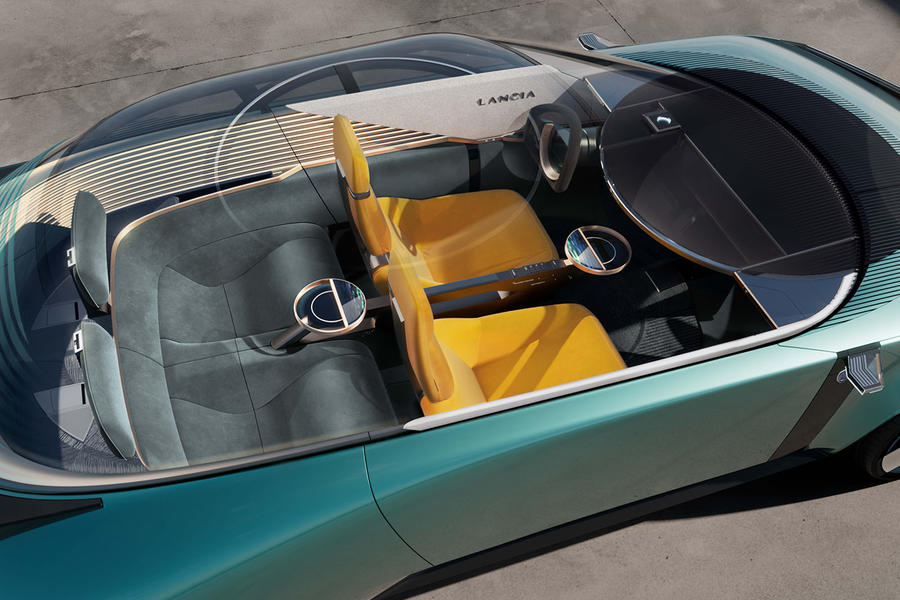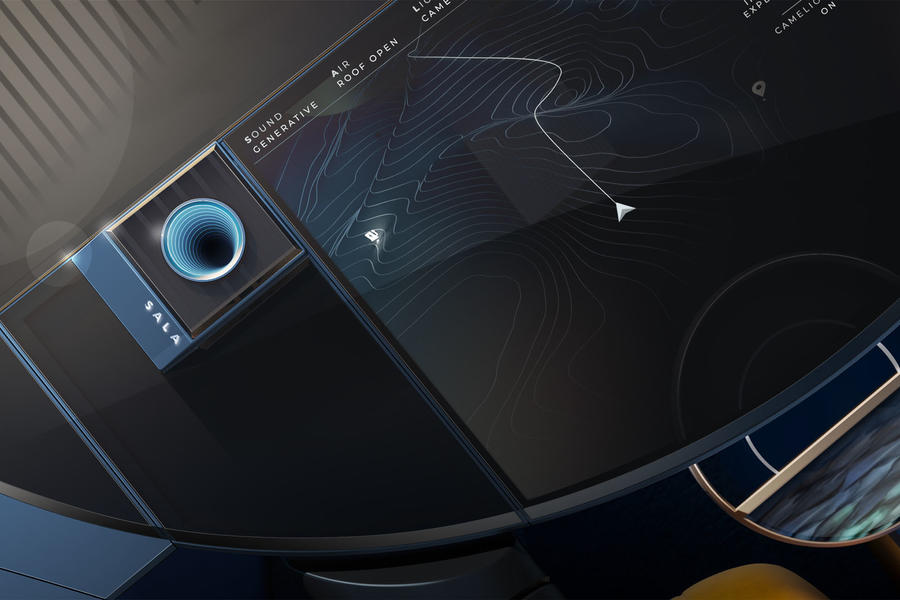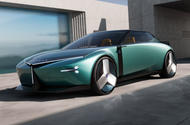The Lancia Pura HPE uses Stellantis’s new STLA EV platform
Reborn Italian brand gives clues to electric Ypsilon and Delta with radical, retro design study
Lancia has revealed a bold new electric sports coupé that previews the design, technology and positioning of its future production cars.
The Pura HPE is derived from the floating ‘Pu+Ra Zero’ sculpture the firm unveiled last year as a preview of its future design intent. The ‘HPE’ element of its name is taken from the High-Performance Estate variant of the successful Beta that redefined Lancia’s image in the 1970s, but in the Pura’s case it stands for ‘High-Performance Electric.
The stylistic influence of Lancia’s iconic past models is clear: the rear end is a futuristic reinterpretation of the Stratos, the ‘calice’ LED front light bar is derived from the chrome motif on the front of cars such as the original Delta and Aurelia, and there is more than a passing resemblance to the legendary 037 in the HPE’s low-slung, squat proportions. These nods to Lancia’s “glorious and rich” heritage will be a defining theme of the brand’s future line-up, CEO Luca Napolitano has said, confirming recently that the first of these cars, the new Ypsilon, is “basically ready” ahead of its planned launch next year.
The four-seat coupé concept – measuring 4450mm long, 1950mm wide and 1350mm tall – will not evolve directly into a production car, Lancia has suggested, but it gives strong hints to the design cues and technology that will feature on the firm’s upcoming models. These include the Ypsilon, which is being launched with hybrid and EV options (both most likely based on the Fiat 500), a new ‘flagship’ EV saloon coming in 2026 and the reborn Delta that’s due in 2028.
Lancia will only launch electric cars from 2026 and will stop selling the hybridised Ypsilon from 2028, bringing to an end almost 120 years of combustion-engined Lancias.

Also previewed by the HPE are Lancia’s plans for a radical interior rethink for its new cars. This is intended to help position the brand more concretely as a technology-focused premium alternative to the likes of Audi and BMW. The Pura HPE’s cabin has been designed to provide a “warm and welcoming” contrast to the clear-cut, more aggressive exterior.
The deep, velvet front seats are said to provide armchair levels of comfort, for example, there are small round tables in the front and back, and the unique circular glass roof swivels open to provide an innovative new take on the classic targa top. The materials used throughout are 70% recycled, and Lancia is targeting a figure of at least 50% recycled materials for its production cars. Tellingly, Lancia’s new-generation infotainment system – previewed here for the first time – is called ‘Sala’, which translates to ‘room’ but also stands for ‘sound, air, light and augmentation’. This new platform is controlled either by voice commands or using an expansive (and purely conceptual) circular touchscreen that folds out of the dashboard and will provide a raft of new functions and interfaces aimed at enhancing the driving experience and providing new entertainment functions while waiting at charge points. A smaller screen for essential driving data is housed in the centre of the steering wheel.

Lancia says the fully functioning HPE concept is a “joy to drive”, but the firm is keeping technical details close to its chest for now. Electric Lancias will be based on parent company Stellantis’s STLA EV platforms and closely related to equivalent models from sibling brands including Peugeot, Alfa Romeo, Maserati and Vauxhall.
The brand has not yet confirmed whether UK sales are on the cards, having bowed out of the market in 2015, but it will begin selling cars outside of Italy for the first time since 2017 as it gears up to launch in France, Spain, Portugal, Belgium and the Netherlands.
Read more: Is Lancia’s future as bright as its past?
Source: Autocar
